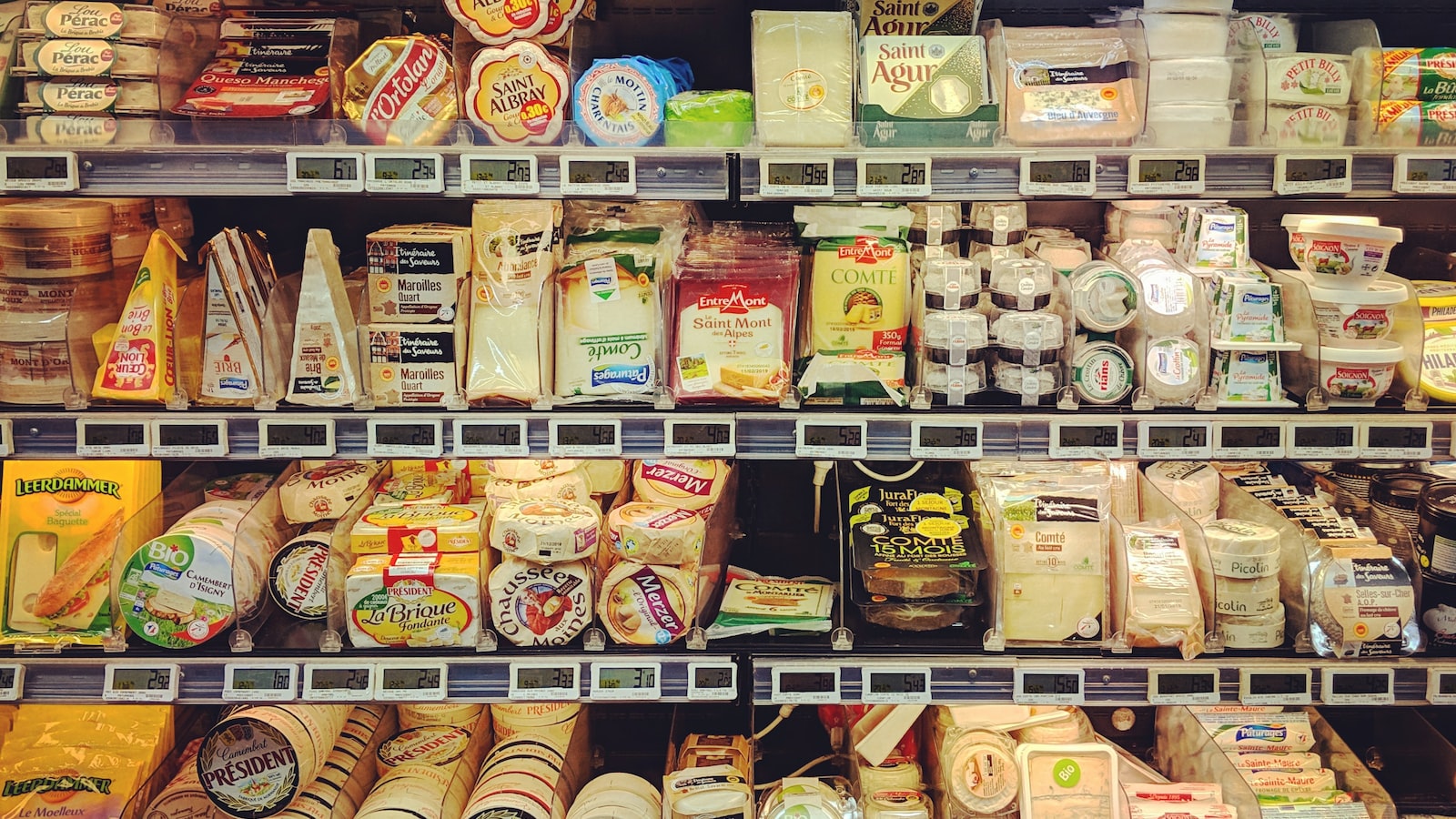In the crevices of time and the annals of history, there exist moments of profound change that ignite the flames of revolution. France, a land steeped in grandeur and adorned with cultural treasures, serves as a captivating tapestry upon which such moments have been woven. From the defiant cries of the guillotine to the resonating chants of the streets, this land bears witness to a remarkable lineage of revolutionaries and rebels, who have left an indelible mark upon the political landscape. In this article, we delve into the captivating story of France’s political transformations, shining a light on the sweeping waves of change that have shaped this nation, and exploring the individuals who fearlessly challenged the status quo. Brace yourself, for we embark on a journey through time, where the boundaries of convention and tradition fade into insignificance under the relentless pursuit of progress and the quest for a brighter future.
Political Transformations: The Catalysts Fueling Revolutionary Ideals in France
In the tumultuous period of the late 18th century, France became a hotbed for transformative political ideas that would shape the course of history. A convergence of factors ignited the flames of revolution, igniting a fire that could not be extinguished. Here, we delve into the catalysts that fueled the revolutionary ideals that would forever change the landscape of France.
The Enlightenment: A beacon of intellectual awakening, the Enlightenment unleashed a torrent of new political and philosophical ideas that challenged the traditional notions of monarchy and divine rule. Renowned thinkers like Rousseau, Voltaire, and Montesquieu paved the way for a radical reimagining of society, urging for the empowerment of the people and the establishment of natural rights.
Socioeconomic Inequality: Burdened by a system rooted in feudalism, France grappled with immense socioeconomic disparities that created a breeding ground for dissent. The vast majority of the population endured harsh living conditions, while the nobility reveled in luxury and privilege. This stark inequality fueled resentment and gave rise to the desire for a fairer society that would redistribute power and wealth more equitably.


Unraveling the Shifts: How France’s Political Landscape Evolved Over the Centuries
Throughout history, France’s political landscape has undergone fascinating transformations, shaped by the ebb and flow of societal values, power struggles, and cultural shifts. From the monarchy of the Ancien Régime to the revolutions that defined the modern era, this ancient European nation has experienced a diverse range of political ideologies and systems. Let’s delve into the captivating journey of France’s political evolution:
- The Monarchic Era: For centuries, France was predominantly ruled by monarchs, granting considerable power to a hereditary king or queen. This period saw the emergence of iconic figures like Louis XIV, known as the “Sun King”, whose absolutist reign left an indelible mark on French history.
- The French Revolution: The late 18th century witnessed a seismic shift as the French people revolted against the monarchy, leading to the French Revolution. Inspired by principles of liberty, equality, and fraternity, the revolutionaries dismantled the monarchy and established a republic, marking the dawn of a new political era.

Navigating Change: Recommendations for Harmonizing Political Transformations in France
In these times of political transformations in France, it is crucial to navigate the complexities and strive for harmonious transitions. Here are some recommdendations that can aid in this process:
- Encourage open dialogues:
- Promote inclusive conversations that allow different viewpoints to be heard and considered.
- Create platforms for citizens, politicians, and experts to exchange ideas and find common ground.
- Focus on social cohesion:
- Invest in initiatives that foster social integration and bridge the gaps in society.
- Promote diversity and inclusivity to ensure that all segments of the population are represented and their needs addressed.
Furthermore, here are additional recommendations that can contribute to a harmonized political transformation:
- Transparency and accountability:
- Implement measures to enhance transparency in political proceedings and decision-making processes.
- Hold public officials accountable for their actions and ensure they act in the interest of the people.
- Educational reform:
- Rethink the education system to provide comprehensive political education to citizens, fostering critical thinking and informed decision-making.
- Promote unbiased teaching of history and politics to facilitate a nuanced understanding of political transformations.

From Revolutionaries to Rebels: Assessing the Impact of Political Transformations on French Society
French society has undergone significant political transformations throughout its history, shaping its identity and influencing the lives of its people. From the fervent revolutionaries during the French Revolution to the rebellious spirits of various political movements, these transformations have left an indelible mark on the nation.
One of the most notable impacts of these political transformations is the shift in societal structures and values. The French Revolution, for instance, brought about radical changes in the social hierarchy by overthrowing the monarchy and empowering the common people. This led to the establishment of principles such as liberty, equality, and fraternity, which continue to shape French society today. Additionally, subsequent political movements, such as the protests of May 1968, challenged traditional norms and values, fostering a culture of individualism, freedom of expression, and rejection of authority.
- The French Revolution marked the birth of modern nationalism.
- Political transformations have contributed to the development of the French welfare state.
- The influence of these transformations can be seen in various aspects of French culture, including art, literature, and film.
Overall, the impact of political transformations on French society has been profound, propelling the nation from revolutionaries to rebels. These transformative periods have shaped not only the political landscape but also the social fabric, values, and cultural expression in France.
In Retrospect
As the curtains close on this exploration of France’s political transformations, we are left mesmerized by the riveting tale of revolutionaries and rebels who reshaped the course of history. From the thunderous echoes of the French Revolution to the resilient spirit of resistance during World War II, this journey through the annals of time has painted a vivid picture of a nation in perpetual motion.
Through the lens of change, we have witnessed the birth of new ideas and the death of old regimes. We have seen the indomitable flicker of hope ignite in the hearts of those yearning for freedom, and the resolute determination to face adversity head-on. We have marveled at the power of collective action as France has torn down the proverbial walls of oppression, defying the status quo and shaping the destiny of an entire nation.
In these oft-turbulent times, it is the revolutionaries who have risen above the status quo, challenging the norms and instigating seismic shifts in the fabric of society. Their vision, fueled by passion and intellectual fervor, has paved the way for social justice and fundamental rights that we now hold dear.
But let us not forget the rebels who, in the face of overpowering odds, have stood as bastions of resistance. The unyielding spirit they have displayed has been a testament to the power of one voice, one idea, to disrupt the chains of conformity and champion the cause of change.
France’s political transformations, violent and transformative as they may have been, have left an indelible mark on our collective memory. They have taught us that the pursuit of progress is often fraught with strife and sacrifice, yet always worth the fight. They have shown us that the power lies not in the hands of a few, but in the unified voice of the many.
As we bid adieu to these revolutionary chapters, we are left pondering the relevance of their lessons in our own time. What can we learn from these restless souls who dared to challenge the boundaries of possibility? How can we embrace the spirit of revolution and rebellion to address the pressing issues of our era?
We must reflect upon the enduring legacy of the revolutionaries and rebels who have walked these hallowed streets before us. Let their stories guide us towards a future where justice, equality, and liberty prevail. With their indomitable spirit as our compass, we can march towards tomorrow, armed with the courage to challenge the limitations of today.
In the end, the tale of France’s political transformations is not just one of history and events. It is an ode to the human capacity for change, resilience, and the unyielding pursuit of a better world. As we venture forth, may we heed the echoes of the past, drawing inspiration from the revolutionaries and rebels who forged a path towards a brighter, more enlightened future.

